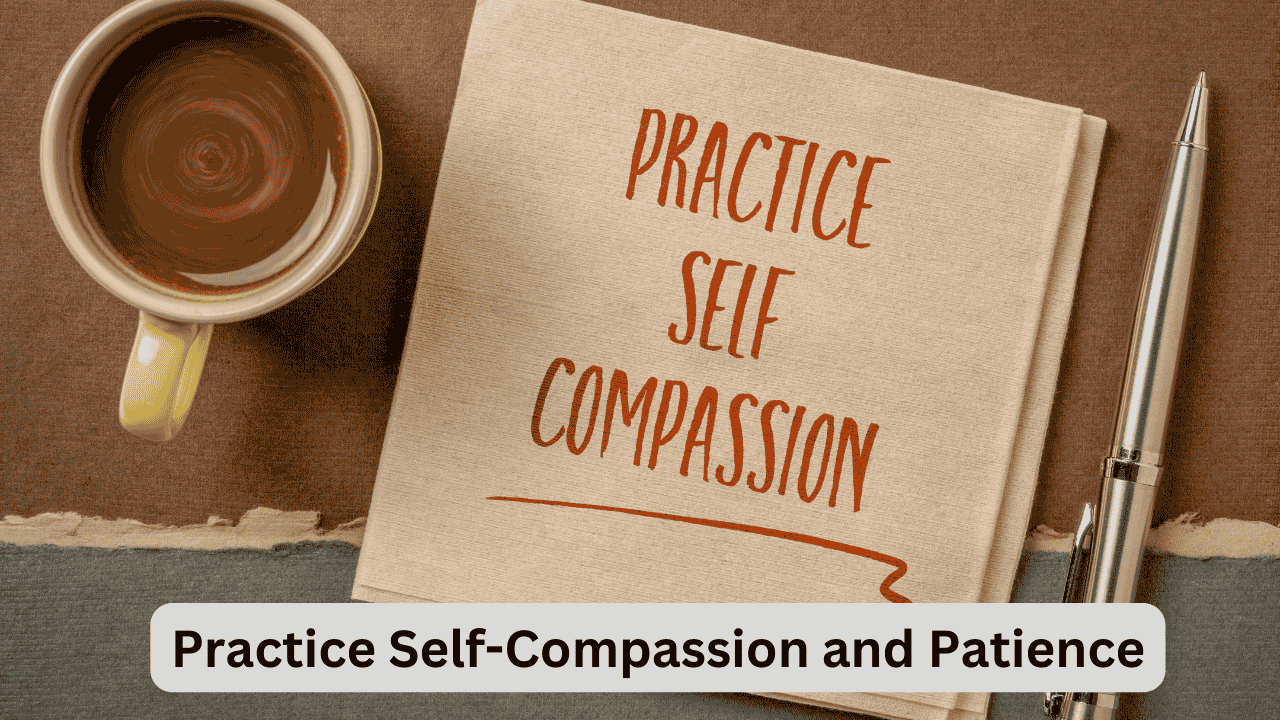Staying focused is an essential skill in today’s fast-paced world, where distractions are just a click away. Whether you’re striving to excel in your career, education, or personal life, mastering the ability to focus can significantly improve your productivity and well-being. In this article, we’ll explore effective strategies to help you stay focused, tackle distractions, and maintain mental clarity.
Why Is Staying Focused Important?
Focus is the cornerstone of productivity and success. When you can direct your attention toward a task without getting sidetracked, you achieve better results in less time. Staying focused boosts efficiency, reduces stress, and enhances decision-making abilities. However, staying attentive can be challenging due to external distractions and internal factors like stress and fatigue. Understanding why focus matters is the first step toward reclaiming it.
How Distractions Impact Your Ability to Stay Focused

Distractions are everywhere – from social media notifications to multitasking demands. Here’s how distractions negatively affect your focus:
- Reduced Productivity: Frequent interruptions can cause delays in task completion.
- Increased Errors: Shifting attention between tasks leads to mistakes.
- Mental Fatigue: Constantly refocusing drains your mental energy.
Recognizing these impacts is crucial for developing strategies to combat them and effectively stay focused.
Proven Strategies to Stay Focused
1. Set Clear Goals and Prioritize Tasks
Clarity is key to maintaining focus. Start by identifying your most important tasks (MITs) and breaking them into smaller, manageable steps. Create a to-do list and prioritize based on deadlines and importance. Stay focused by tackling one task at a time rather than multitasking.
Example of Task Prioritization Table:
| Priority Level | Task Description | Deadline |
|---|---|---|
| High | Complete project proposal | Today |
| Medium | Respond to client emails | Tomorrow |
| Low | Organize desk | End of week |
By following a structured approach, you eliminate ambiguity, making it easier to concentrate.
2. Create a Distraction-Free Environment
Your environment significantly impacts your ability to stay focused. Optimize your workspace by:
- Turning off unnecessary notifications.
- Decluttering your desk.
- Using noise-canceling headphones or playing soft background music.
If you work from home, communicate boundaries with family or roommates to minimize interruptions.
3. Practice Mindfulness and Meditation
Mindfulness trains your brain to concentrate on the present moment, improving your ability to focus. Set aside a few minutes daily to practice mindfulness or meditation. Techniques like deep breathing can help you refocus when your mind starts to wander.
Benefits of Mindfulness for Focus:
- Reduces stress and anxiety.
- Enhances attention span.
- Promotes a sense of calm and clarity.
4. Use the Pomodoro Technique
The Pomodoro Technique is a time-management strategy designed to enhance focus. Here’s how it works:
- Choose a task.
- Set a timer for 25 minutes.
- Work on the task until the timer rings.
- Take a 5-minute break.
- After four sessions, take a longer 15-30 minute break.
This method helps you stay focused by balancing work and rest, preventing burnout.
5. Fuel Your Brain with Proper Nutrition

Your diet plays a significant role in your cognitive performance. Foods rich in omega-3 fatty acids, antioxidants, and vitamins boost brain health and focus.
Focus-Enhancing Foods:
- Blueberries: Packed with antioxidants.
- Salmon: High in omega-3 fatty acids.
- Green tea: Contains L-theanine for calm focus.
- Nuts and seeds: Provide essential nutrients for brain health.
Stay hydrated and limit caffeine intake to avoid energy crashes.
6. Get Regular Exercise
Physical activity improves blood flow to the brain, enhancing cognitive function and focus. Incorporate at least 30 minutes of moderate exercise, like walking, cycling, or yoga, into your daily routine. Regular movement reduces stress and improves your ability to stay focused on tasks.
7. Limit Multitasking
Multitasking divides your attention, making it harder to concentrate. Focus on one task at a time to maximize efficiency and reduce errors. Use tools like time-blocking to dedicate specific periods for individual tasks and stay focused on each.
8. Embrace Technology to Stay Focused
Technology can be a double-edged sword. While it can be a distraction, certain tools and apps can help improve your focus. Examples include:
- Focus@Will: Background music for concentration.
- RescueTime: Tracks and manages your screen time.
- Forest: Encourages staying off your phone by growing a virtual tree.
These tools support your efforts to stay focused by minimizing distractions and keeping you accountable.
9. Prioritize Sleep and Rest
Sleep is the cornerstone of maintaining focus and productivity. Here’s how you can make the most of your rest to stay sharp and energized:
The Importance of Quality Sleep
Getting 7-9 hours of quality sleep each night is crucial for recharging your brain and body. Poor sleep can lead to decreased attention span, memory issues, and mental fatigue, all of which can hinder your ability to stay focused during the day.
Benefits of Adequate Sleep
- Enhanced Cognitive Function: Quality sleep improves your ability to think clearly, learn new information, and solve problems.
- Better Mood: A good night’s sleep can significantly improve your mood and reduce stress levels.
- Increased Productivity: Well-rested individuals are more productive and efficient in their tasks.
Creating a Bedtime Routine
Establishing a consistent bedtime routine can greatly improve your sleep quality. Here are some tips to help you wind down and prepare for a restful night:
- Set a Regular Sleep Schedule: Go to bed and wake up at the same time every day, even on weekends.
- Limit Screen Time: Reduce exposure to screens at least an hour before bed to avoid the stimulating effects of blue light.
- Create a Relaxing Environment: Make your bedroom a sanctuary for sleep by keeping it cool, dark, and quiet. Consider using blackout curtains, earplugs, or a white noise machine.
- Practice Relaxation Techniques: Engage in calming activities such as reading, meditating, or taking a warm bath before bed.
Nutrition and Sleep
What you eat and drink can also impact your sleep quality. Here are some dietary tips to consider:
- Avoid Caffeine and Alcohol: Both can interfere with your sleep cycle. Try to avoid them in the hours leading up to bedtime.
- Eat a Light Evening Meal: Heavy meals can cause discomfort and disrupt your sleep. Opt for a light, balanced dinner instead.
- Stay Hydrated: Drink enough water throughout the day, but reduce fluid intake in the evening to minimize nighttime awakenings.
Physical Activity and Sleep
Regular physical activity can promote better sleep. Aim for at least 30 minutes of moderate exercise most days of the week, but try to avoid vigorous workouts close to bedtime.
Monitor Your Sleep
Consider using a sleep tracker to monitor your sleep patterns and identify areas for improvement. Many smartwatches and fitness trackers offer sleep tracking features that can provide valuable insights into your sleep quality.
Seek Professional Help if Needed
If you continue to struggle with sleep despite making these changes, it may be helpful to consult a healthcare professional. Conditions like insomnia or sleep apnea can significantly impact your sleep quality and may require medical intervention.
By prioritizing sleep and rest, you can enhance your focus, productivity, and overall well-being. Remember, a well-rested mind is a powerful tool for achieving your goals and staying on top of your game.
10. Practice Self-Compassion and Patience

Maintaining focus is a skill that requires time and practice to develop. It’s essential to be kind to yourself when your concentration wavers. Here are some tips to make this practice more informative, engaging, and attractive:
Understand the Learning Curve
Recognize that improving your focus is a gradual process. Just like learning any new skill, it takes time and effort. Celebrate small victories along the way, such as completing a task without distractions or staying focused for a longer period than usual.
Set Realistic Goals
Set achievable goals for your focus practice. Start with short, manageable periods of concentration and gradually increase the duration as you become more comfortable. This approach helps build confidence and reduces the pressure to perform perfectly from the start.
Reflect on Progress
Take time to reflect on your progress regularly. Keep a journal to note your achievements and challenges. This practice not only helps you track your improvement but also provides motivation to continue working on your focus.
Embrace Mindfulness
Incorporate mindfulness techniques into your daily routine. Mindfulness can help you stay present and reduce the tendency to get distracted. Simple practices like deep breathing, meditation, or mindful walking can significantly enhance your ability to concentrate.
Learn from Setbacks
Understand that setbacks are a natural part of the learning process. Instead of being harsh on yourself, view these moments as opportunities to learn and grow. Analyze what caused the distraction and think about how you can avoid similar situations in the future.
Seek Support
Don’t hesitate to seek support from friends, family, or professionals. Sharing your goals and challenges with others can provide encouragement and accountability. Sometimes, a fresh perspective can offer new strategies to improve your focus.
Reward Yourself
Reward yourself for your efforts and achievements. Positive reinforcement can boost your motivation and make the process more enjoyable. Treat yourself to something you enjoy after a productive session, whether it’s a favorite snack, a short break, or a fun activity.
Stay Patient
Patience is key when developing any new skill. Understand that progress may be slow at times, but persistence will pay off. Remind yourself that every step forward, no matter how small, is a step in the right direction.
By practicing self-compassion and patience, you create a supportive environment for yourself to improve your focus. Remember, it’s a journey, not a race. Celebrate your progress, learn from your experiences, and stay committed to your goals.
FAQs About Staying Focused
1. Why do I struggle to stay focused?
Focus challenges can stem from distractions, stress, fatigue, or lack of clear goals. Identifying the root cause can help you implement the right solutions.
2. How long should I practice focusing each day?
Start with short intervals, like 15-25 minutes, and gradually increase as your concentration improves.
3. Can exercise improve my focus?
Yes, regular exercise enhances blood flow to the brain, improving cognitive function and focus.
4. What foods help with focus?
Foods like blueberries, salmon, nuts, and green tea contain nutrients that boost brain health and concentration.
5. Are there apps to help me stay focused?
Yes, apps like Forest, Focus@Will, and RescueTime are designed to minimize distractions and enhance focus.
6. How does mindfulness help with focus?
Mindfulness trains your brain to concentrate on the present moment, reducing distractions and improving attention span.
7. Can poor sleep affect focus?
Absolutely. Poor sleep leads to mental fatigue, decreased attention span, and memory issues.
8. What is the Pomodoro Technique?
It’s a time-management method that uses timed work intervals and short breaks to enhance focus and productivity.
Conclusion: Mastering the Art of Focus in a Distracted World
In today’s fast-paced, distraction-filled world, staying focused is an invaluable skill. By incorporating these strategies into your daily routine, you can significantly improve your concentration, boost productivity, and achieve your goals. Here’s how to make the most of your focus journey:
Embrace the Journey
Understand that mastering focus is a journey, not a destination. Celebrate each small victory, whether it’s completing a task without distractions or extending your focus time. Every step forward is progress.
Consistency is Key
Practice and consistency are essential. The more you integrate these focus strategies into your routine, the more natural they will become. Over time, you’ll find it easier to maintain concentration and stay on track.
Create a Supportive Environment
Surround yourself with tools and habits that support your focus. This includes a clutter-free workspace, a well-structured schedule, and regular breaks to recharge your mind.
Reflect and Adjust
Regularly reflect on your progress and adjust your strategies as needed. What works for one person might not work for another, so be open to experimenting with different techniques until you find what suits you best.
Stay Positive and Patient
Be kind to yourself when your focus wavers. Recognize that maintaining concentration is a skill that takes time to develop. Stay positive, patient, and persistent, and you’ll see continuous improvement.
By implementing these tips, you’ll be well on your way to a more focused and fulfilling life. Remember, the ability to concentrate is a powerful tool that can help you navigate the challenges of modern life and achieve your aspirations. Keep practicing, stay consistent, and enjoy the journey to mastering the art of focus. Please follow our blog Educationewz.



